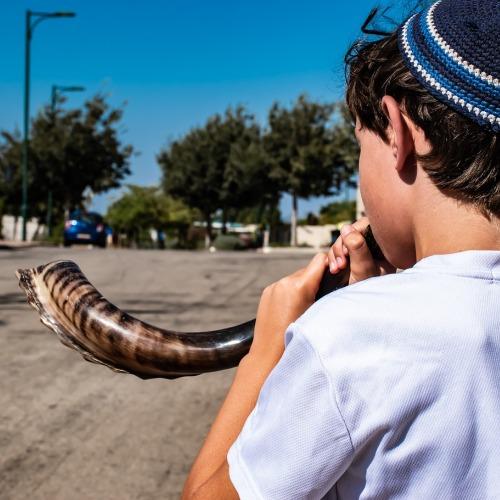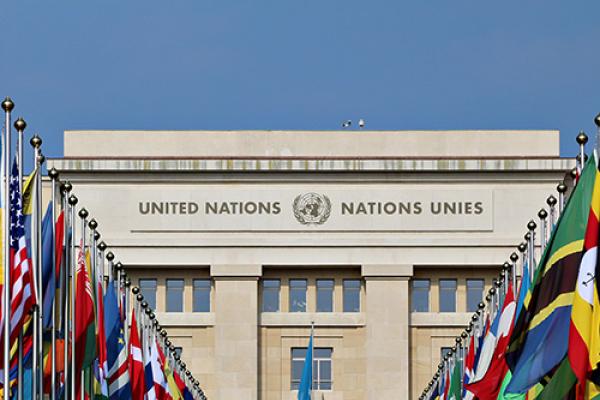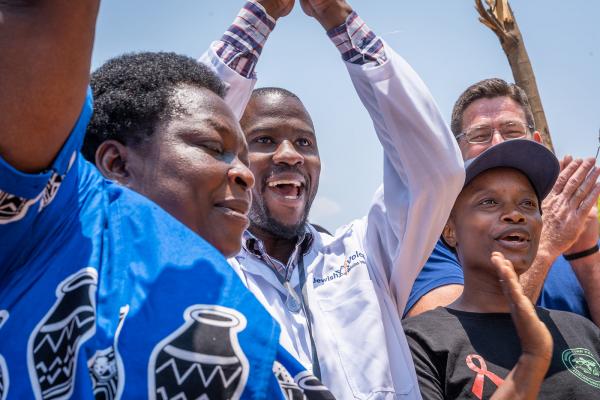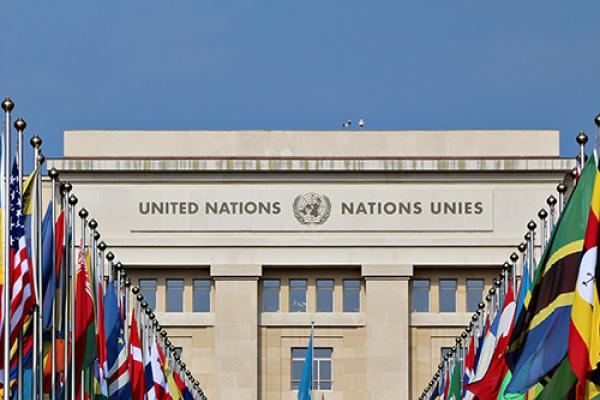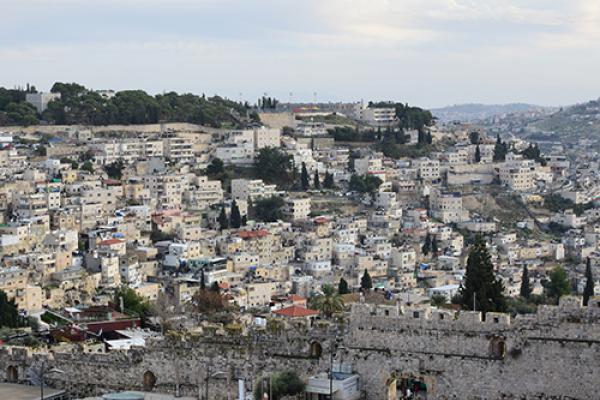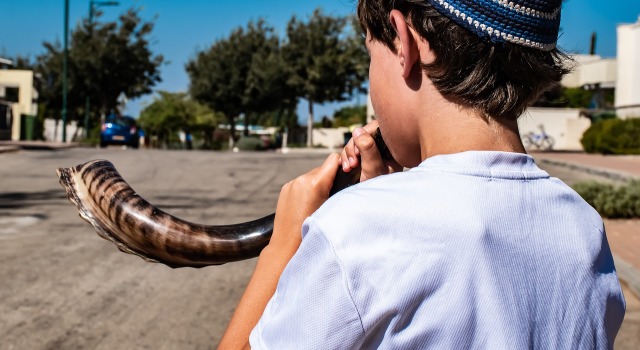
How often do we meet with God in prayer and let Him set the agenda for our time with Him?
We quickly come to the Lord when we have a need or experience trouble. We pour out our hearts to Him, bringing our burdens and praying for others. These are all right and valid reasons to draw near to God, and Scripture directs us to do so. (See Hebrews 4:16, James 5:13, Psalm 31:9, Psalm 62:8, Matthew 11:28, 1 Peter 5:7, James 5:16.) But what about when God wants to direct the conversation?
It’s exciting that God wants to meet with us. The Scriptures listed above are just a sampling of His invitations to be with Him. When it comes to letting God take the lead in our time with Him, the biblical Feasts that He commanded for Israel offer us annual opportunities. They allow us to meet with the Lord in “appointments” where He has selected the topics.
The Hebrew word for Feast is moad, meaning “appointed time.” God called the Jewish people to connect with Him on these occasions for remembrances, celebrations and special observances. He calls us to be with Him, remember what He has done for us and give attention to His holiness.
There are three Fall Feasts: Yom Teruah/Rosh Hashanah, Yom Kippur and Sukkot. Here, we share a bit about each Feast, provide Scripture readings and offer some thoughts to help you spend meaningful time with God during each one.
Yom Teruah / Rosh Hashanah
Yom Teruah means “day of blowing” in Hebrew. The Bible says little about this Feast of Trumpets, as it’s called in English. God’s commands in Leviticus 23:23–25 simply instruct us as the Jewish people to blow the shofar as a memorial, do no work, hold a sacred assembly and present an offering. The shofar, made from animal horns, was blown to announce gatherings, begin worship and engage in battle. Simply stated, it was a call to attention.
Over time, the sages of Israel came to believe that God created the world on the date of Yom Teruah, and thus Rosh Hashanah, the Jewish New Year, became associated with the Feast. Rosh Hashanah means “head of the year.” At Rosh Hashanah, and leading up to it, Jewish people the world over focus on self-examination, repentance and returning to God as we seek His favor for the New Year. Tradition teaches that on Rosh Hashanah, God pronounces a judgment on each of us regarding the coming year. Ten days later, on Yom Kippur, He is said to seal that judgment, and during the days between, He may change an unfavorable ruling and seal us for a good year. Therefore, they are days of increased attention to making amends and returning to right standing with God.
Messianic Jews also celebrate Rosh Hashanah in connection with our people around the world. We have a confidence in the efficacy of our repentance as we call on our Messiah Jesus.
Personal Reflection for Rosh Hashanah
Reading: Leviticus 23:23–25, 1 Samuel 12:20, Romans 8:1, 2 Corinthians 5:17, Ephesians 4:23–24
Meet with God About: Returning and Listening to Him
Reflect On:
- Returning your attention to His ways and desires for your life
- Repenting of wrongdoings and returning to Him from the places where you have strayed
- Recommitting yourself to follow and remain near to Him in the next year
Reflection Questions:
- What does God want to call your attention to at this time?
- What returning is He inviting you to do?
- What does He want you to focus your attention on in the coming year?
Yom Kippur
Yom Kippur is the holiest day of the Jewish year. It is the Day of Atonement, and in biblical times, it was the one day each year when the High Priest put on special garments and brought the blood of sacrifices into the Holy of Holies. There he sprinkled the blood on the Ark of the Covenant to atone for his and Israel’s sin.
Yom Kippur is a solemn day observing God’s commandments to do no work and to “afflict ourselves.” For 25 hours, we fast from food, water and various pleasures or luxuries. We give our time and attention to God’s holiness and purity, denying ourselves for the sake of seeing Him more clearly and worshiping Him more fully.
As Believers in Jesus, we give thanks for the complete atonement we have through Jesus’ sacrifice and the eternal sealing that is given to us in the Holy Spirit.
Reading: Leviticus 23:26–32, Hebrews 4–10
Meet with God About: Worshiping and Praising Him
Reflect On:
- God’s holiness and purity
- The cost of your sin (innocent blood)
- Jesus, your high priest, who cleanses you from sin through the sacrifice of His own blood
Reflection Questions:
- In what ways do you not honor God’s holiness as you should?
- How can you cultivate a deeper awe of God?
- What does the connection between Yom Kippur and Jesus’ work of atonement tell you about the Lord?
Sukkot
Sukkot is the only Feast in which the Lord commands us to rejoice. It is a seven-day festival celebrating God’s provision for our ancestors in the wilderness. It includes the Lord’s command to build and live in temporary shelters for seven days. These “booths” (which is the meaning of the word sukkot) are to remind us of how our ancestors lived in tents for 40 years. He sustained us in a desolate desert with miraculous food, water and clothing and footwear that did not wear out.
We take our meals and entertain guests in our sukkot. Through roofs made of loosely arranged natural vegetation, we look up to the night sky and remember God’s faithfulness in keeping His promise to Abraham to make his descendants as numerous as the stars in the heavens.
Sukkot is also called the Feast of Booths or Feast of Tabernacles and is a harvest Feast. It celebrates and makes an offering from the first produce of autumn’s final harvest. Sukkot decorations center on a bountiful harvest and turn our attention to how God has provided for us today.
Reading: Leviticus 23:33–43, Philippians 4:19, Psalm 121:7–8, Psalm 16:11
Meet with God About: Rejoicing and Thanking the Lord
Reflect On:
- God’s provision in your life
- His protection of you
- The gift of His presence
Reflection Questions:
- How did God provide for or protect you today?
- How does His presence strengthen and bless you?
- What will you rejoice over today?
Blessed holidays to you!



